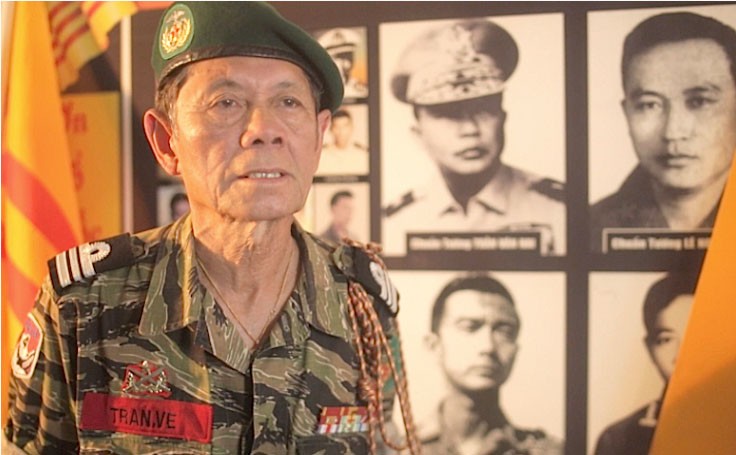Documentary on Vietnamese re-education camps offers learning opportunity

GVL / Courtesy – unforgottenfilm.com
Mar 29, 2018
There are many untold stories about armed conflicts worldwide, and the Grand Valley State University Veterans History Project aims to tell those tales. GVSU students are invited to join them for a showing of “Unforgotten,” a documentary about Vietnamese survivors of re-education camps. The showing is set for Monday, April 2, at 6:30 p.m. in the DeVos Center Loosemore Auditorium.
“We’re ultimately looking here at a piece of history most people don’t know much about,” said James Smither, the director of the GVSU Veterans History Project. “South Vietnamese often get characterized as ineffective, but you talk to these people who suffered a lot, and this gives them a certain amount of voice.”
“Unforgotten” was directed by Diem Thuy, whose father was in one of the re-education camps.
“When I was working for Vietnamese TV, I met a lot of Vietnamese veterans, and I heard a lot of stories about re-education camps,” she said. “I did not begin working on the documentary until one person whose story I promised to share passed away. I told myself I had to do it because I don’t (want) everyone to pass and their story never be told. After the wartime, it seemed to me no one talked about it and ignored it, so I thought it’s my duty.”
Being involved was a difficult decision for many of those interviewed.
“I selected from 200 to 300 stories to 14 because most of some passed away, and some were afraid to share because family in Vietnam could be harmed,” Thuy said. “When I said, ‘Can I put you on camera?’ they would back off and say no because they felt if they traveled back to Vietnam, they don’t want any problems. It’s sad because people feel panicked. In Vietnam, you can still disappear.”
This film will give the audience a wider perspective on the Vietnam conflict and its consequences.
“I think one of the big things people learn ought to be a deeper understanding of how bad war itself can be and all the consequences of it,” Smither said. “It’s important to understand really what different things help make the world what it is and what brought us to where we are. We also have a population of Vietnamese here because of that war and what came out of it. So, just in a way to put a human face on that experience and part of history is good.”
The GVSU Veterans History Project ultimately works to curate stories of veterans.
“What we do here is conduct oral history interviews with military veterans from World War II to present. We record those interviews and put them on a website,” Smither said. “We have over 1,100 posted right now and more in progress. In addition to talking to veterans, we also talk to foreign nationals and civilians that have stories to tell.”
Thuy believes not enough people are aware of what happened after the conflict.
“I would love Americans to understand the Vietnam War and how after the war affected us,” she said. “It’s a big scar and it’s not easy. We don’t have democracy or freedom, and the story is never told.”






















